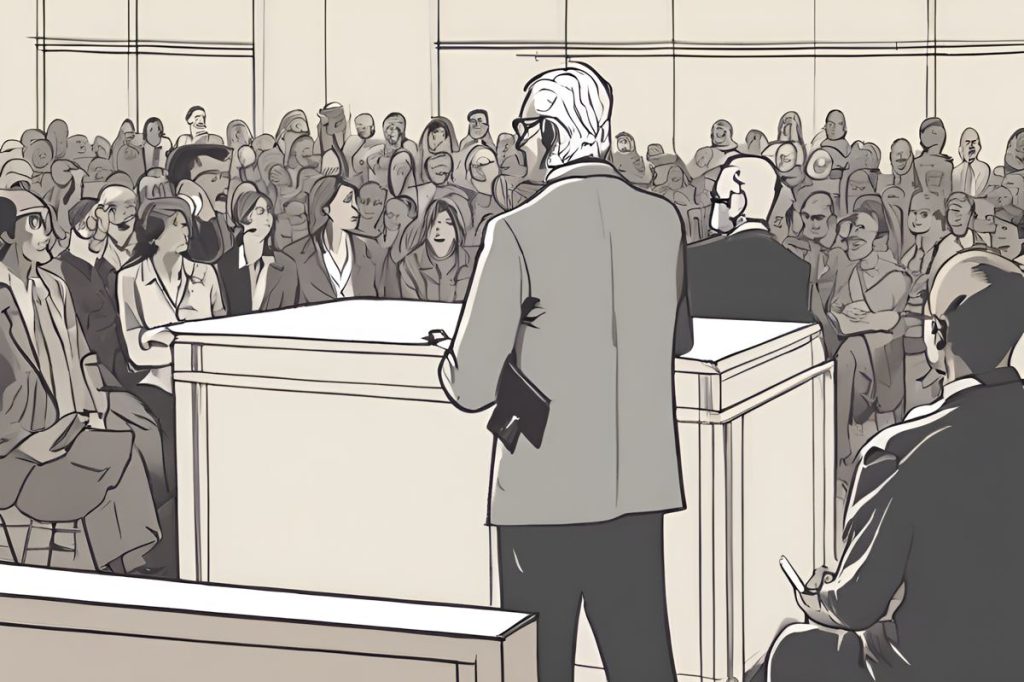The repeated delay of journalist Ali Kismir’s trial in Cyprus for allegedly insulting the Turkish Cypriot armed forces has ignited demands for legal reforms to safeguard press freedom and revise outdated military crimes laws. The postponement has sparked a debate on the limits of free speech, the military’s role in civil discourse, and the influence on media and individual expression, prompting a call to action for legislative changes and protection of democratic values.
What is the main issue prompting calls for legal reforms in Cyprus?
The main issue prompting calls for legal reforms in Cyprus is the need to protect press freedom and amend outdated military crimes law. This comes to light after the repeated postponement of journalist Ali Kismir’s trial for allegedly insulting the Turkish Cypriot armed forces, sparking debate over speech boundaries and military influence on media and individual expression.
Legal Standoff Over Press Freedom
A significant call for change echoed through the corridors of power as a Turkish Cypriot MP asserted the need for an overhaul of the north’s law on military crimes. This demand came in the wake of yet another postponement of journalist Ali Kismir’s trial, which has now been deferred to April 17 at the earliest. The trial, which was originally set for October 6 of the previous year, centers around charges of “insulting” the Turkish Cypriot armed forces. Kismir’s contentious statement described the ‘TRNC security forces command’ headquarters in a derogatory manner.
The incident has sparked a debate on the boundaries of freedom of speech and the press in the face of military institutions. The MP’s stance underlines a growing discontent with the current legislation, and it poses critical questions about the role of the military in civil discourse and the extent to which it should influence the freedom of the media and individual expression.
Political Response and Public Sentiment
Sami Ozuslu, representing the opposition party CTP, did not mince words when criticizing the lack of progress on a proposed bill to amend the military crimes law. The bill made its way to the parliamentary legal committee but has since stagnated, prompting Ozuslu to question the ruling party’s commitment to discussing the changes. He accused the authorities of hypocrisy and claimed that their actions were only fuelling societal tension and exerting undue pressure on journalists.
The MP’s comments highlight a schism between the legislative agenda and public expectations. It’s a call to action for non-governmental organizations and civil society to rally for the protection of democratic values. His message was clear: it’s time to abolish outdated legal provisions that threaten to muzzle the press and stifle public opinion.
European Solidarity with Press Freedom
Adding his voice to the local outcry, European Federation of Journalists vice president Mustafa Kuleli stood in solidarity with the accused journalist outside the courtroom. He emphasized that the legal actions taken against Kismir and journalists in similar situations are unbecoming of Cyprus’s reputation. Kuleli expressed confidence in the Cypriot people’s resolve to stand against such oppression and to defend their freedoms vigorously.
This international attention serves as a reminder that the issue of press freedom in Cyprus has implications beyond its borders, resonating with media professionals and advocates for democracy across Europe and the world. The support from international bodies reaffirms the notion that freedom of the press is a cornerstone of democratic society, one that transcends geographic and cultural divides.
What sparked the demands for legal reforms in Cyprus regarding press freedom?
The repeated delay of journalist Ali Kismir’s trial for allegedly insulting the Turkish Cypriot armed forces ignited demands for legal reforms to safeguard press freedom and revise outdated military crimes laws. This has prompted a debate on the limits of free speech, the military’s role in civil discourse, and the influence on media and individual expression.
Why is the postponement of Ali Kismir’s trial significant in the context of press freedom?
The postponement of Ali Kismir’s trial is significant because it has raised concerns about the boundaries of freedom of speech and the press in the face of military institutions. The trial centers around charges of insulting the Turkish Cypriot armed forces, sparking a debate on the extent to which the military should influence media and individual expression.
What key political response has been observed in relation to the demands for legal reforms?
A Turkish Cypriot MP has called for an overhaul of the north’s law on military crimes in response to the postponement of Ali Kismir’s trial. Criticizing the lack of progress on a proposed bill to amend the military crimes law, the MP emphasized the need to protect democratic values and the freedom of the press against outdated legal provisions that could stifle public opinion.
How has European solidarity with press freedom played a role in the situation in Cyprus?
European Federation of Journalists vice president Mustafa Kuleli has shown solidarity with Ali Kismir and other journalists facing similar situations in Cyprus. This international attention highlights the importance of press freedom beyond national borders and emphasizes the support for democratic values and freedom of the press across Europe and the world.

